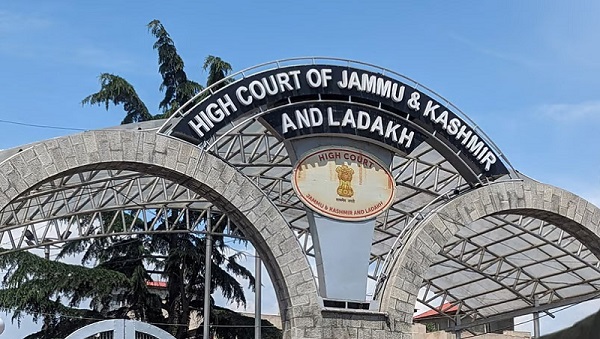
STATE TIMES NEWS
JAMMU: In a significant development, the Full Bench of Jammu & Kashmir and Ladakh High Court on Monday declined to grant interim relief in a batch of petitions challenging the Union Territory government’s notification declaring 25 books as “forfeited” for allegedly propagating secessionism.
Full Bench comprising Chief Justice Arun Palli, Justice Rajnesh Oswal and Justice Shahzad Azeem refused interim relief but issued notice on the pleas filed under Section 99 read with Section 528 of the Bharatiya Nyaya Sanhita (BNSS). The bench, however, dismissed a public interest litigation (PIL) on the same issue, observing that it did not qualify as “public interest” and remarking that “90% of people would not understand the issue.”
The petitions, filed by retired Air Vice Marshal Kapil Kak, author Dr. Sumantra Bose, peace scholar Dr. Radha Kumar, and former Chief Information Commissioner Wajahat Habibullah, assail the August 5 notification of the J&K Home Department. The government had invoked Section 98 BNSS to forfeit 25 books on Kashmir’s political and social history, alleging that they “propagate false narratives and secessionism.”
The petitioners argued that the impugned order is sweeping, unreasoned and arbitrary, as it does not cite specific passages or portions from the books to establish secessionist content. They relied on Supreme Court precedents, including Narayan Das Indurakhya v. State of Madhya Pradesh (1972), to contend that merely reproducing statutory language without underlying grounds does not meet the requirement of a reasoned order.
The government, on the other hand, has maintained that systematic dissemination of such literature has contributed to youth radicalisation, glorification of terrorism, vilification of security forces, distortion of historical facts, and promotion of alienation.
The forfeited books include works by noted scholars and writers such as Sumantra Bose, A.G. Noorani, Arundhati Roy, Seema Kazi, Hafsa Kanjwal and Victoria Schofield, many published by prestigious international presses like Oxford University Press, Stanford University Press and Routledge.
The matter will now be taken up after the government files its response.

